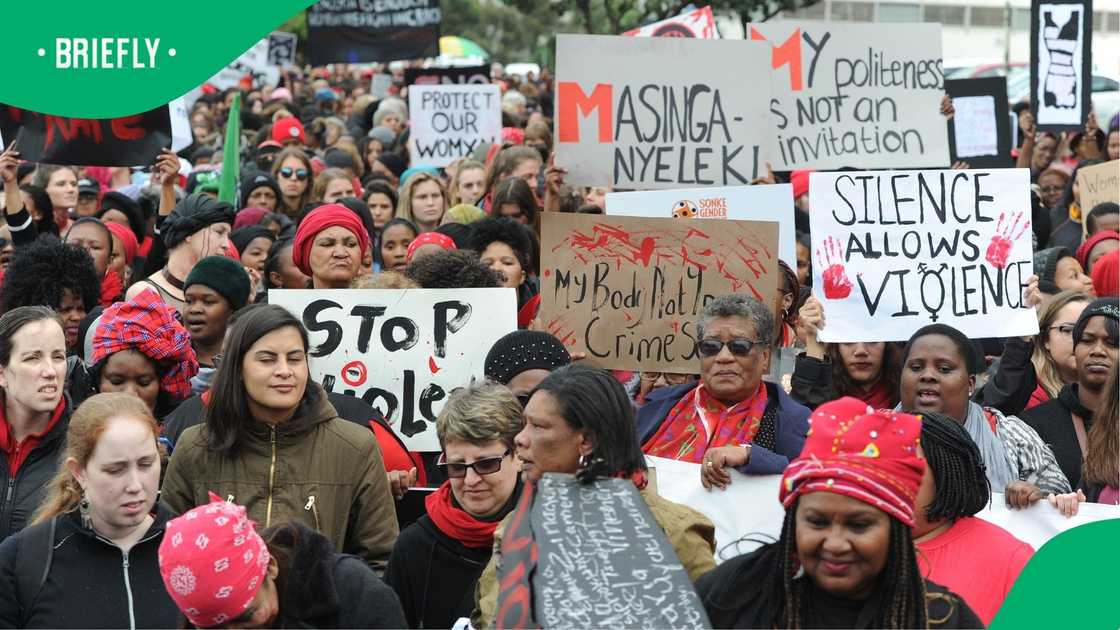The Role of Activism in Advancing Women’s Rights in South Africa
Thokozile Sewela Nhlumayo, an advocate for political and social justice, founded the #NotTooYoungtoLead campaign and serves as the Secretary-General of the International Youth Parliament. She introduced the Women and LGBTQI+ Political Leaders Program in several African countries.
It has been 31 years of democracy, and when I reflect back, I can’t help but realise how women have always been at the forefront of activism in this country. From the anti-apartheid struggles to contemporary campaigns against gender-based violence.

Source: Original
Women are one important group
Women’s movements are a reflection of this country: resilient, organised and indispensable to progress. They have always carried this Country, and have always been at the forefront of activism and reform. But despite all this, women are one important group that has been left behind and massively underrepresented in key political and decision-making roles.
Our roles have been reduced and limited to occupying positions that have little or no influence in the political landscape. This has created a skewed and disproportionate perception of how women and men are viewed in politics and decision-making. Perhaps that is the reason why, until today, laws that protect women and children are not prioritised in this country. The persistence of these gaps is not simply accidental; it is structural.

Read also
A TikTok video showed a massive crowd of job seekers, sparking debate about South Africa’s unemployment crisis
PAY ATTENTION: stay informed and follow us on Google News!
The 1956 march
The voice of women is silenced by systems. Activism, therefore, does more than demand policy change; it challenges systems and the underlying social construct that enables inequality. Which leaves me with a lingering question: Is activism still essential for the realisation of women’s rights here in South Africa?
Activism has been and remains indispensable. It forced apartheid’s patriarchy into the light. The 1956 march of thousands of women to the Union Buildings helped to seal women’s place in the national struggle.
In the democratic era, protests, hashtags and grassroots organising have jostled violence and inequality back onto the public agenda, extracted commitments from government, and demanded accountability when promises turned hollow. So the answer is yes; activism is still very essential for the realisation of women’s rights here in SA.

Source: Getty Images
Creating political windows
But activism cannot finish the job. While it performs essential functions such as demolishing complacency and creating political windows for reform, it cannot carry the burden alone. As an additional approach to best complement activism, we also need to make social justice the cornerstone of governance.

Read also
“We’re choosing our own suffering”: SA discusses who they are voting for in 2028 elections in TikTok video
When social justice becomes the cornerstone of governance, when policies, laws, and budgets are designed to reduce gendered inequalities, the gains born in protest can be made permanent. South Africa’s story of women’s rights can move from a narrative of resilience in the streets to a reality encoded in every law and policy in this country. Creating a reality where women’s rights are protected not by the frequency of outrage but by the reliability of justice.
3 More opinion stories about women empowerment
- Briefly News previously reported that we are witnessing a global resurgence of fascism and anti-women’s rights advocacy, driven by conservative politics rooted in patriarchy and hyper-neo-capitalism.
- AI-powered analytics tools can provide women entrepreneurs with valuable insights into market trends, customer behaviour, and business performance.
- African women scholars must embrace artificial intelligence as a tool to advance scholarly practices, and it must be used ethically so that it does not undermine research outputs by students and staff.

Read also
"You can be arrested": Woman highlights commonly misunderstood illegal acts in South Africa
Disclaimer: The views and opinions expressed here are those of the author and do not necessarily reflect the official policy or position of Briefly News.
PAY ATTENTION: Follow Briefly News on Twitter and never miss the hottest topics! Find us at @brieflyza!
Source: Briefly News

Justin Williams (Editorial Assistant) Justin Williams is a multimedia journalist who recently completed his Bachelor of Arts (BA) degree in Film & Multimedia Production and English Literary Studies from the University of Cape Town. He is a former writer and chief editor at Right for Education Africa: South African chapter. You can contact Justin at justin.williams@briefly.co.za

Thokozile Sewela Nhlumayo (Political and social justice activist) Thokozile Sewela Nhlumayo, an advocate for political and social justice, founded the #NotTooYoungtoLead campaign and serves as the Secretary-General of the International Youth Parliament. She introduced the Women and LGBTQI+ Political Leaders Program in several African countries.
